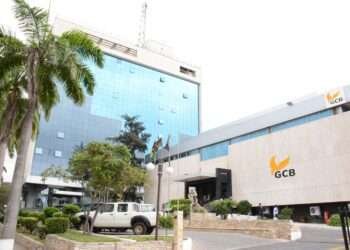A new month beckons the local equities market and investors are eagerly waiting to regain control of market again as the stock market rally took a breather in the final two weeks of August. However, major macroeconomic issues will continue to dominate September’s outlook and continue to shape the conversation.
Stock markets are highly volatile and are one of the first pillars of an economy to react to any macroeconomic changes like inflation rate, interest rates, exchange rate and other host of factors.
Ghana’s annual inflation rate quickened to 43.1% from 42.5% in June, the highest since March. Meanwhile, the simple explanation of rising inflation is the rise in the cost of living or reduction in the purchasing power of money.
Inflation is always viewed as a villain for an economy but the fact is that a healthy inflation level is considered to be good for the economy, especially for a developing economy. However, the Ghana stock markets traditionally seemed to have an inverse relationship with rising inflation.
An Increase in inflation will see a reduction in the disposable income for investors at large which will lead to a lowering of their investments in stocks and other investment options. This leads to a general decrease in the demand for stocks and therefore a bearish mood.
As such, as investors wait for the release of August inflation figures, a likely jump will affect investments on the stock market to some extent.
Ghana’s Exchange Rate Situations
Another key macro economic factor likely to affect the stock market in September is the exchange rate. The currency rates around the world have been tumbling for a long time now. Many giants like the Japanese Yen, the Euro, and Sterling Pound have all seen a sharp decrease in their values in recent times.
The Ghanaian cedi is no different. Although many experts say that the cedi has stabilized recently, it is a fact that the cedi is at an all-time low against the dollar. The direct impact of the exchange rate fluctuations is seen in the stock markets. Any rise in the dollar sees a sharp decline in the stock markets and vice versa.
The rise in the value of the dollar and the fall in the cedi implies that foreign investors will get more returns for their investment in the US markets than in Ghanaian market and hence they pull out of the Ghanaian markets, thereby triggering a fall in the broad market indices.
Meanwhile, one of the many actions taken by the Ghanaian government to fight rising inflation is an increase in interest rates. Recently the Bank of Ghana (BoG) saw an all-time rise in inflation levels prompting the Central Bank to increase its interest rates.
This increase in the interest rates has a negative impact on the stock market as the local bourse saw a sharp decline in investments on the stock market.
Meanwhile, second-quarter earning’s numbers have been mixed as companies continue to struggle with rising costs as a result of Ghana’s economic conditions and the possibility of the country going into a recession.
Another factor likely to affect the stock market in the new month is Ghana’s Gross Domestic Product (GDP). The GDP of an economy is the measure of the relative performance of the economy in absolute terms as well as in percentages. It is the value of all the goods and services produced in the country and exported that is measured annually and quarterly. The stock markets react immediately to the announcement of the GDP results of the country.
A rising GDP levels In Ghana indicates a positive outlook for the economy, thereby boosting stock prices. Companies reporting positive financial results in a rising GDP boosts the confidence of the investors (retail and institutional investors) which further creates a bullish market.
However, a fall or a rise in the GDP of Ghana has a long-lasting impact on the economy but the stock markets react promptly and adjust to the news in a negative or positive manner respectively indicating a direct relationship between the two.
Ghana’s GDP has been declining for some time now and in the first half of the year report, the target was further revised down, depicting expectations of a further decline in Ghana’s GDP levels.
As companies continue to release their first half year financial statements, coupled with the country’s mixed macro economic variables, it has the tendency of affecting the stock market performance in the new month of September.
READ ALSO: UNICEF Report Says African Children Bearing the Brunt of Climate Change Impacts























